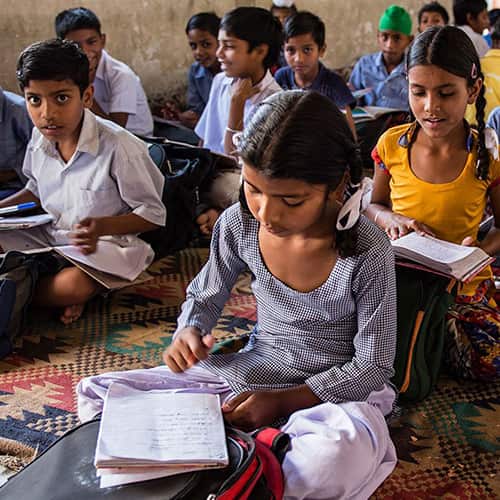What Are Some Poverty in Africa Facts?
There are many facets to the problem of poverty in Africa; facts raise awareness to their situation and show why GFA World’s presence is needed in Africa. About a billion people worldwide are considered to be living in poverty, which means they are under the international level of surviving on less than $1.90 a day.[1] The top ten of the world’s poorest countries are in Africa.[2]
About 47 percent of Africa’s population lives in poverty, and it is projected that the global poor will become more concentrated in Africa since its population is growing rapidly. With so many poor countries and poor people, it is incredibly difficult to prevent further poverty because the cycle is so impossible to escape. Furthering this issue, two in five African adults are illiterate, making higher-paying jobs much more challenging to find.[3]
There are many symptoms of this near-inescapable poverty, and some things are considered both a cause and effect. About one in three people living in sub-Saharan Africa are undernourished, and of the 738 million people globally who lack access to clean water, 37 percent of them are in that same region. This results in 500 million African people suffering from waterborne illnesses, like cholera. The water and sanitation problems lead to a $30 billion loss in work productivity, completely exceeding the amount of foreign aid sent to sub-Saharan Africa in 2003.[4]
In that part of the continent, women are 230 times more likely to die in childbirth or pregnancy than women living in North America. This is about one in sixteen African pregnancies ending in tragedy.[5] Healthcare is often not accessible to the poor. More than one million people, mostly children under age five, die yearly from malaria. This accounts for 90 percent of malaria deaths worldwide; about 3,000 African children die every day from the disease.[6]
GFA World is finding ways to help those suffering under the cycle of poverty in Africa. This includes education through their child sponsorship program, teaching kids to read, training them in necessary skills and opening future opportunities that are unavailable to the uneducated. GFA has also begun installing Jesus Wells, which make clean water available to more people, helping families to stay healthy and spend less time traveling to distant water sources.

Comments
Post a Comment